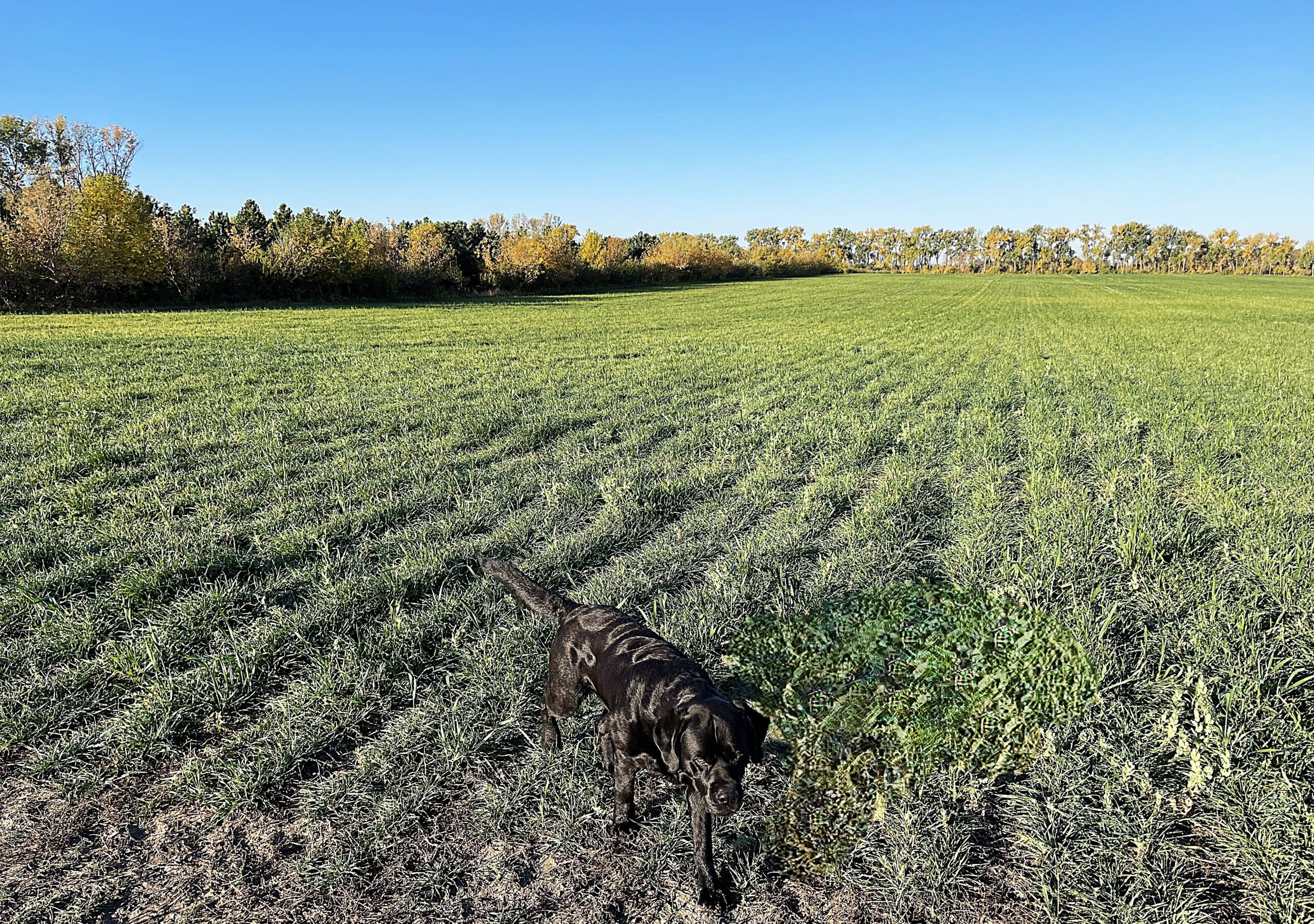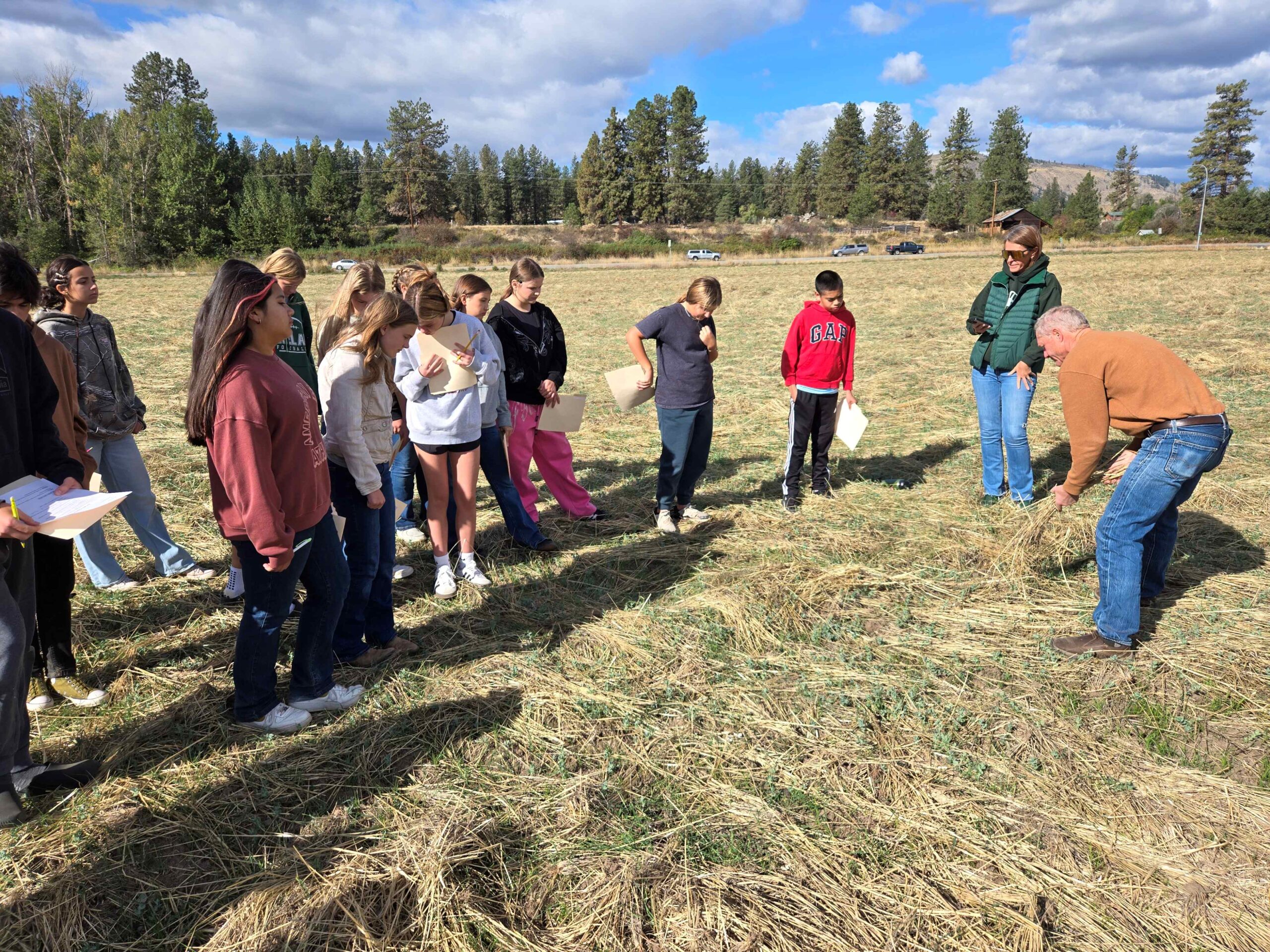Following a most pleasant and coolish June this year, July came in and like that and acted a lot more like August. Mid-month we had 2 weeks of temperatures hovering one side or the other of 100. The river dropped, the green vanished from the north slopes, and our einkorn totally cured out in those two weeks! The birds…?
Our resident waxwings hung around the greenery of our backyard, and subtly sung to us even during the heat. As did the bluebirds, the wrens, the towhees and finches. However, July is the molting season for many adult birds, particularly the males. Male birds need to reset their flare and vitality each year, and July is when many species quietly do this.
One recent morning while taking my early cup on the south porch, I heard a sound I recognized as a familiar water bird but it seemed out of place as we’ve no real nearby water. For whatever reason, overhead flew a pair of Great Blue Herons? Both females? To where I’ve no idea? Hawks stretch about the morning sky, as they hunt food for their young. Soon, the young will be hunting on their own.
As the “dog days” of summer settle in for real now in August, most everything is busier in the early morning and evening. Here at Bluebird, we have adjusted our schedule to the real heat and during the worst of it, fire up our cleaning line and milling line early in the morning. This not only keeps our grains and flours cooler, but it is far easier on our equipment and equipment operators! Because we pull ambient air into the processing area when the building side louvers open, whatever the air temperature is outside, it soon becomes the same inside. In the winter, too! Our workers are tough. They labor hard to keep the grains and flours at consistent temperatures, and most of you realize this when you receive them. High quality is our goal, no matter the weather.
As I hinted earlier, I went ahead and rolled out the old Gleaner harvested our einkorn here at Bluebird a good three weeks ahead of most years. The inter-seeded peas seemed to give the einkorn a boost, and I was able to cut right over the peas in most cases. This crop is our original einkorn variety we began growing out 15 years ago, and it revamps our seedstock. I’ve an awful lot of straw now out there, with dry peas and pea straw left as well. I will be deciding what to do there, aside from putting down a bunch of liquid fish to kick start some biological activity. With all the straw, I will need to manage carefully making sure I’m giving the soil enough nitrogen and other goodies to turn the straw back into nutritious soil. This is always a tricky balancing act. To be sure, this field here will be getting a year off from any sort of grain production, and more cover crops. South of here, Brad has begun einkorn harvest on his farm, as well as the harvesting of the special and yummie Sonora soft white wheat. We are beginning to take deliveries of both up here at Bluebird.
In unrelated news; still no new Farm Bill. This now is almost a year past the last bill’s expiration. Partisan politics kill everything, including a new Farm Bill. It was good to learn that USDA head Tom Vilsack was at the Rodale Institute earlier in July, and was talking about different farming paradigms than what is currently called “conventional. We know that most current, and too often subsidized practices are not sustainable. Production of food, as is, has a huge impact on Climate Change. I’ve read estimates that say food production is responsible for one-quarter of the world’s carbon emissions. Yikes! Gotta’ do better, here.
The good news is: We know how. The not so good: Big Ag farm subsidies keep this from happening, wherein the average rice farmer receives $292,000 in government subsidies, soybean farmers $54,000 and the overall average of farm subsidies going to the high income bracket is $450,000. Meanwhile, the Farm Bill has many important and relevant programs that we need to ensure soon such as SNAP – for retirees and disabled citizens.
Next month school will be in full swing most everywhere. I have been impressed lately how many schools have been putting more emphasis on real nutrition, and less on junk. I know this is complicated, and it isn’t always the most affordable path up-front, but where better to spend than on good food for our youth? If we can keep their minds and bodies healthy then we have accomplished a turning point, perhaps, in education. Please beware as schools open and many more kids will be in and on the roads and streets.
Sally forth here, as we go full on into harvest. Reap the bounty our Mother somehow continues to provide us, and never once take this for granted. Carry on, youth. We need you to make wise decisions, and bring some unity back to this country. No pressure!
Yours,
Farmer Sam
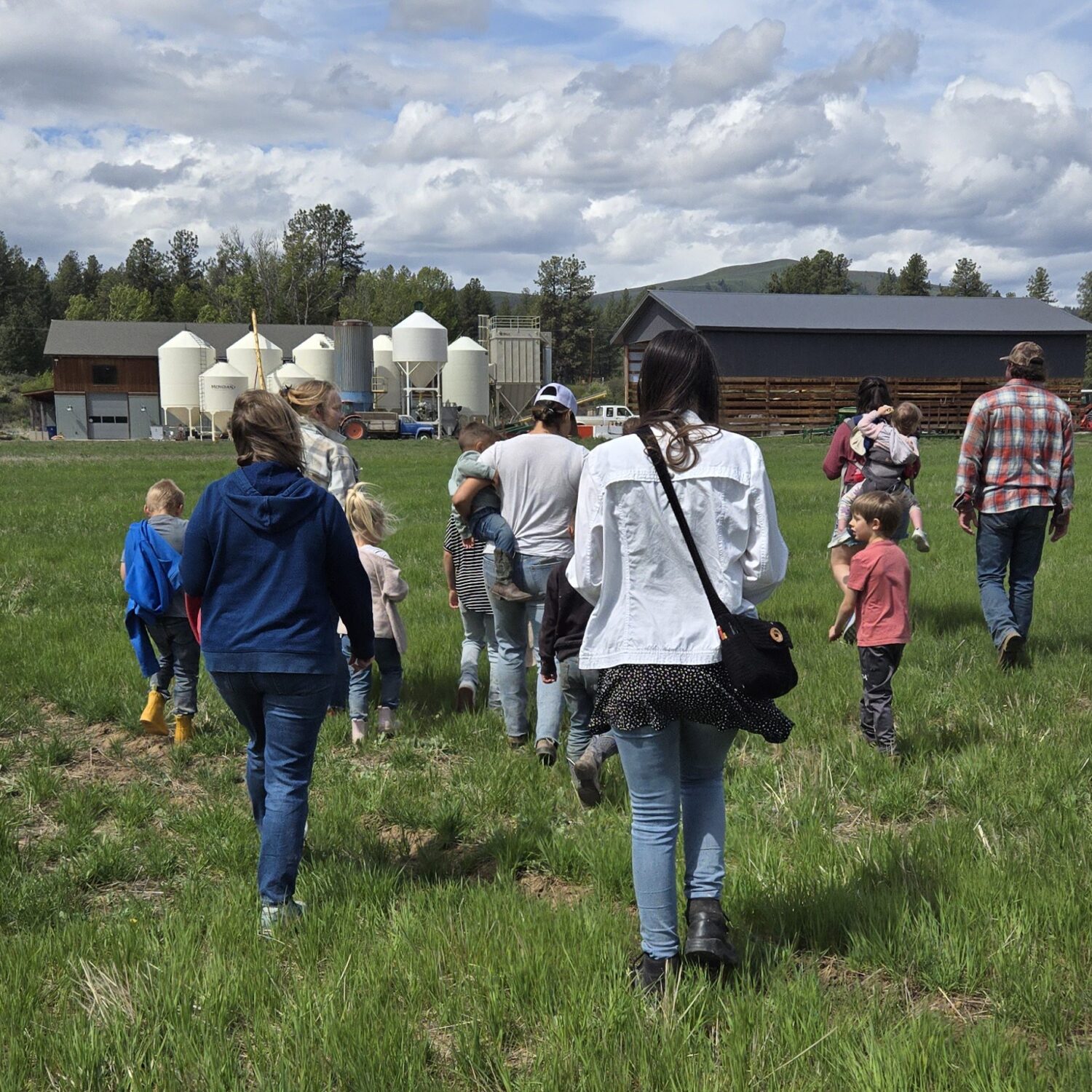 May 24th Farm & Granary Tour 10am-11am: Join us for an open house and tour. Open house will be from 9-2pm, farm tour is from 10-11. The tour date has passed – we had a great time, we’ll let you know when the next tour will be.
May 24th Farm & Granary Tour 10am-11am: Join us for an open house and tour. Open house will be from 9-2pm, farm tour is from 10-11. The tour date has passed – we had a great time, we’ll let you know when the next tour will be. 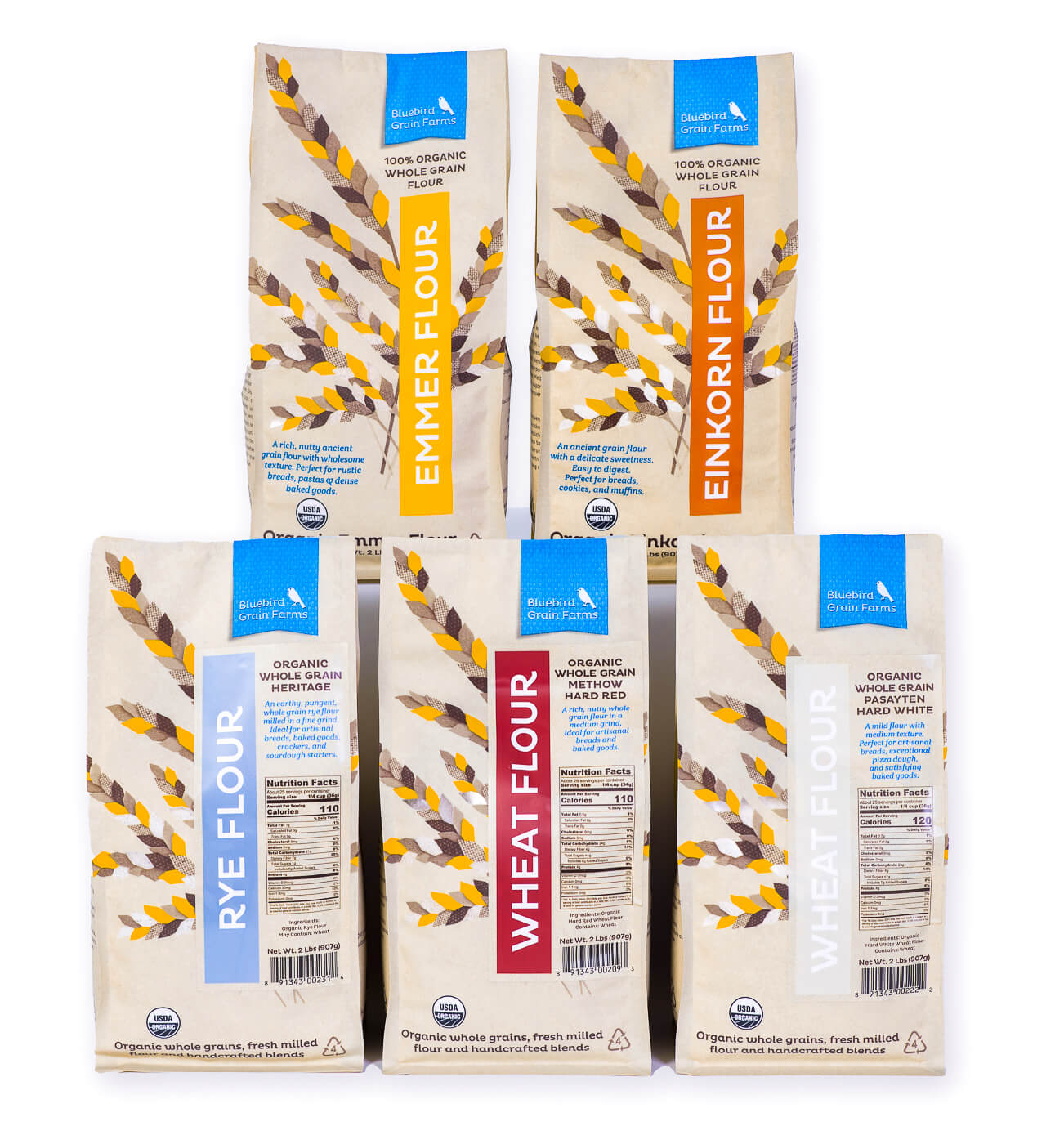 Our best selling flours hit PCC Markets! Three more of our whole grain flours will hit the shelves at PCC Markets this month. Einkorn Flour, Spelt Flour, and Rye Flour will compliment our Emmer and Hard Red Wheat Flour. We are thrilled to be offering our organic whole grain flours at PCC Markets. If you are a customer that shops at PCC please give us a shout out to your friends and neighbors (social media is always appreciated). We need to make sure that our launch is a success. Not sure how to use wholegrain flour? Check out our recipe page for ideas.
Our best selling flours hit PCC Markets! Three more of our whole grain flours will hit the shelves at PCC Markets this month. Einkorn Flour, Spelt Flour, and Rye Flour will compliment our Emmer and Hard Red Wheat Flour. We are thrilled to be offering our organic whole grain flours at PCC Markets. If you are a customer that shops at PCC please give us a shout out to your friends and neighbors (social media is always appreciated). We need to make sure that our launch is a success. Not sure how to use wholegrain flour? Check out our recipe page for ideas.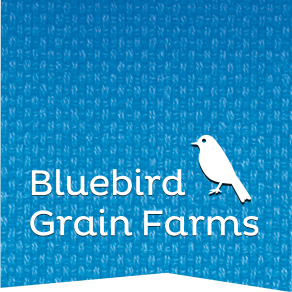
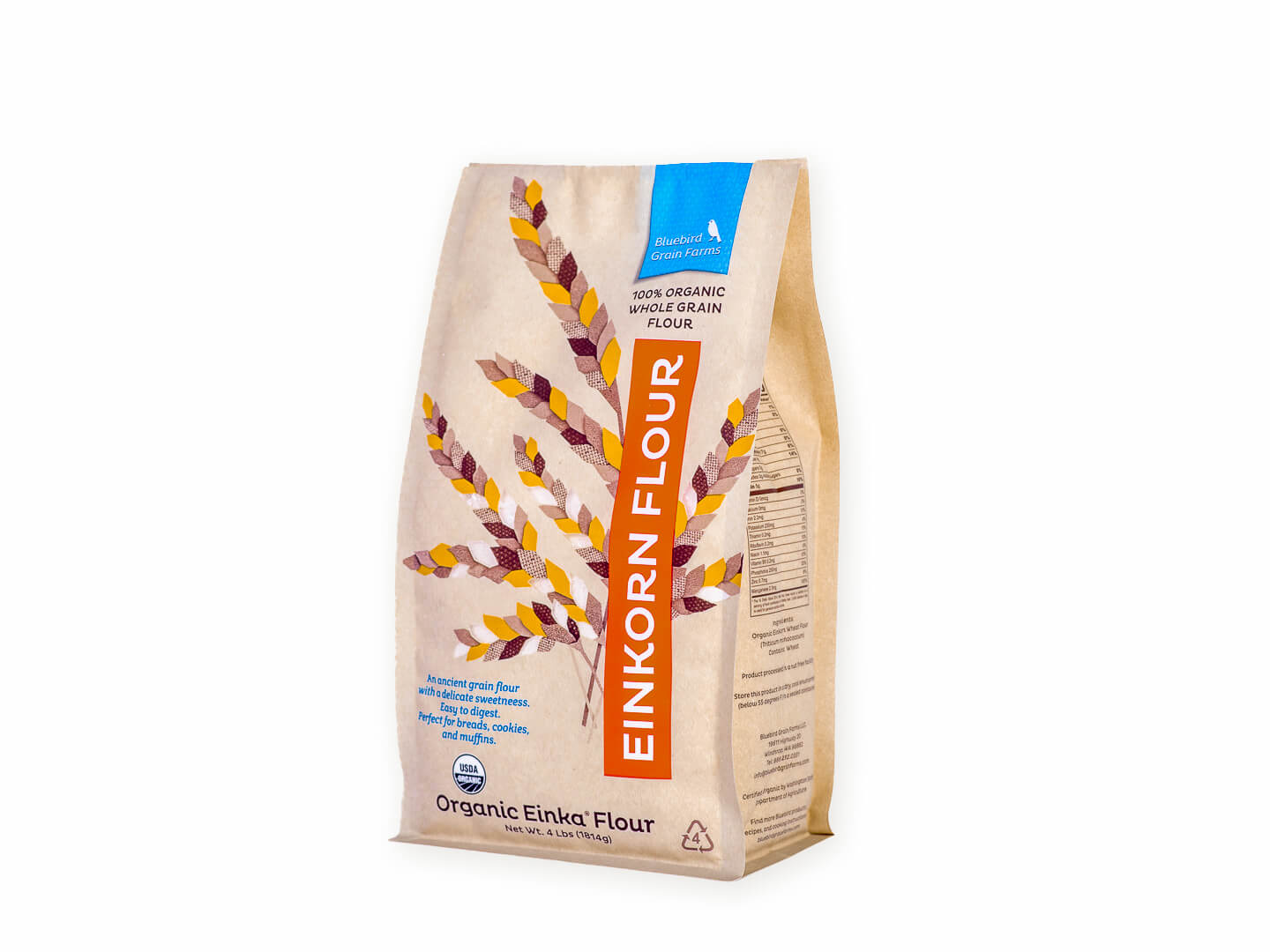
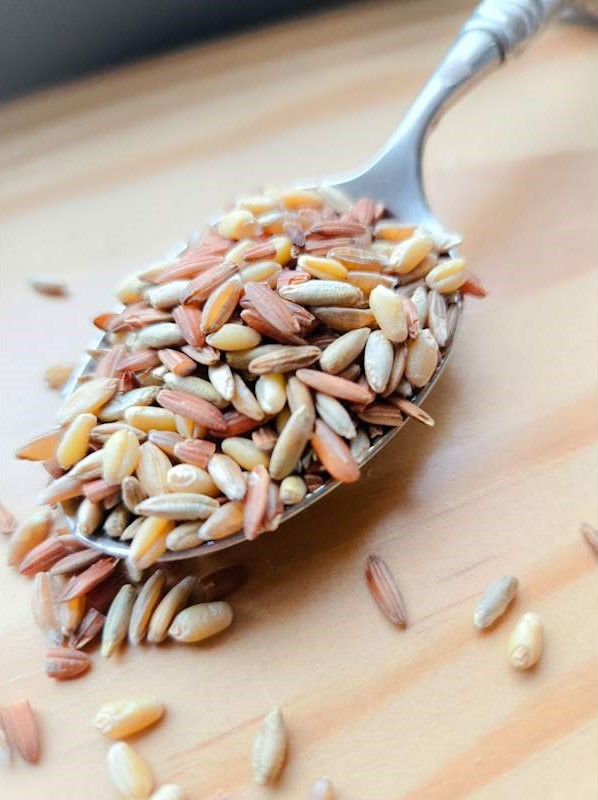
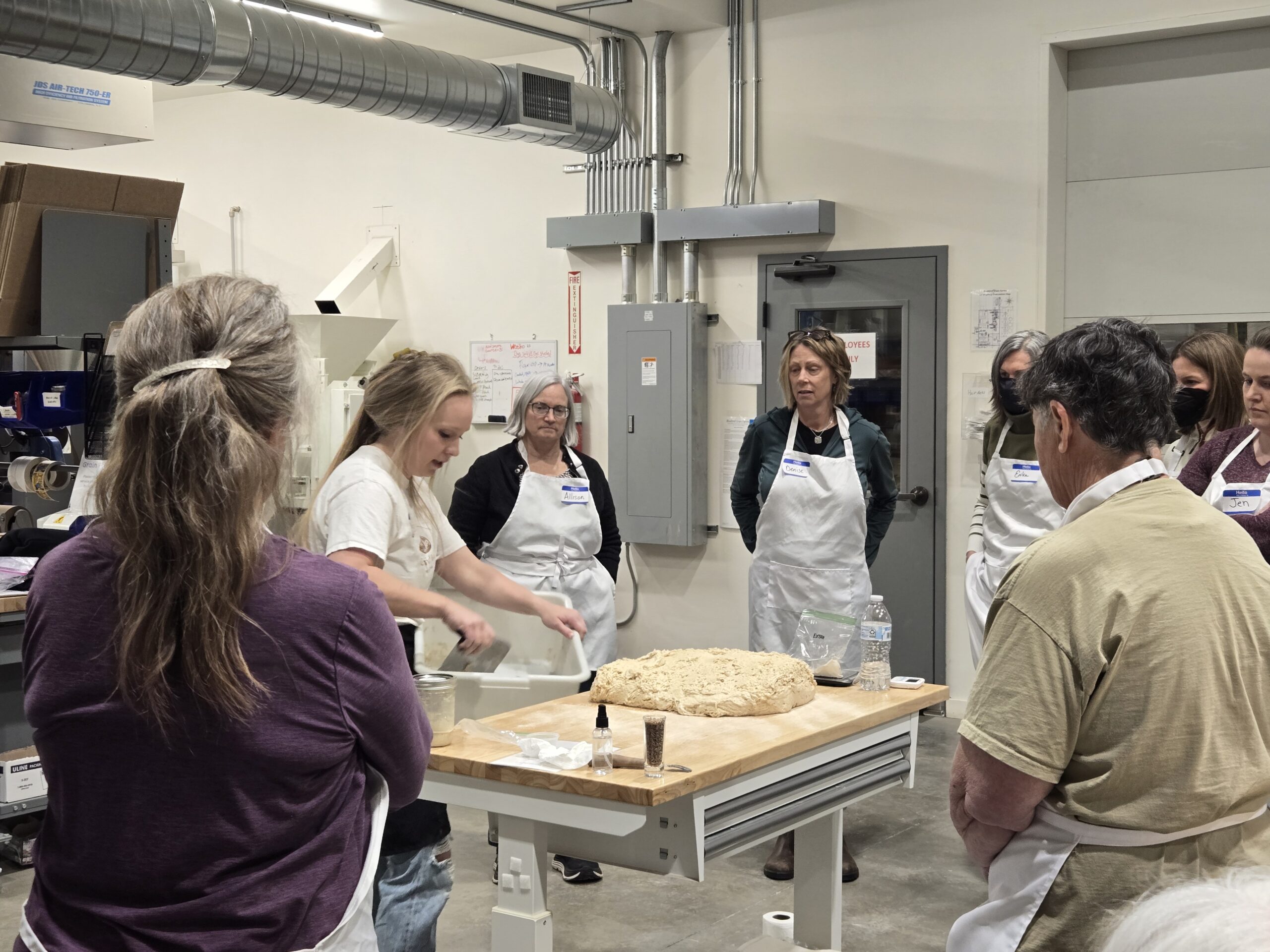
 Farmer Sam’s New Book is Here!
Farmer Sam’s New Book is Here!